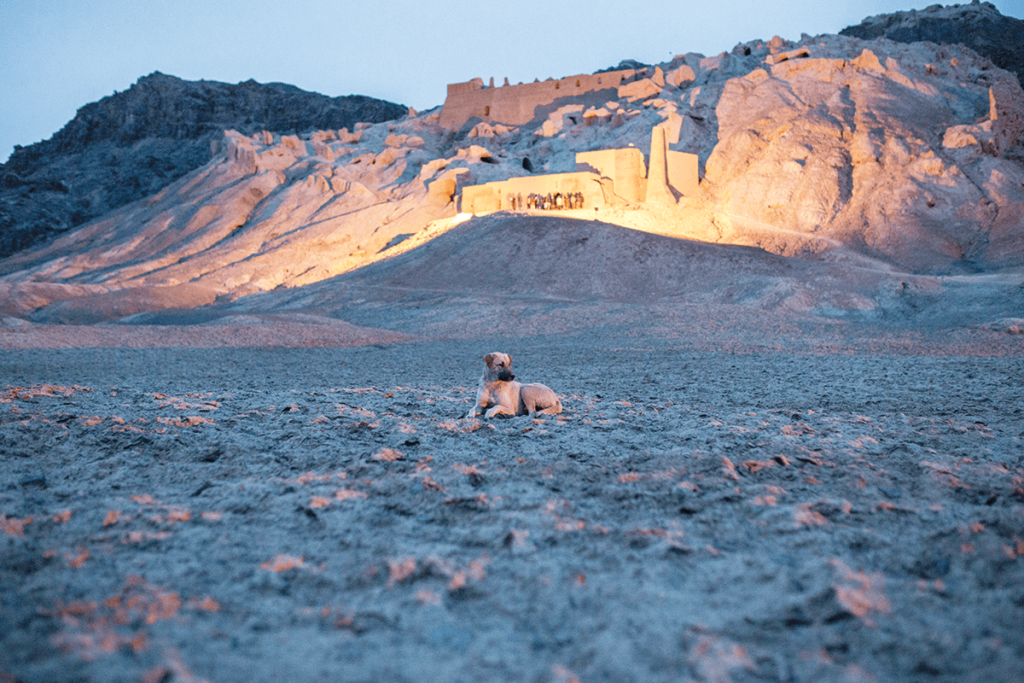
Solmaz Daryani grew up an hour’s drive from Iran’s Lake Urmia, where her grandmother and other family members lived. She recalls watching the lake shrink, year after year, as the effects of climate change and drought took their toll on the region. “This lake was here for thousands of years,” she remembers thinking. “This can’t happen, they’ve got to do something.” After documenting the economic and environmental toll of the vanishing lake in her photo series “The Eyes of Earth,” Daryani is turning her lens to Iran’s broader water crisis.
Her ongoing series, “In the Desert of Iran’s Wetlands,” examines how Iranians, especially the most vulnerable, are dealing with this increasing scarcity of water. Here she describes her visit to Sistan province, near the Afghanistan border, where she photographed Mount Khajeh, a site with historical and religious significance. —Katie Daniels
I just went there. I was a little bit afraid because I went to the exact border of Iran and Afghanistan. I had no idea what could happen there, because I was a woman alone, but I just went. There’s a road going to a castle on Mount Khajeh, and on the side of the road, you can see lots of small ponds. It’s the remnants of Hamun Lake. Twenty years ago, it was full of water and that mount was like an island. The place the dog sits in the photograph was once water.
I didn’t intend to focus on the water crisis, but when I started working on the story of my own family, I realized that this is very, very important to me because I was one of those people who witnessed the whole story of a place. I went to Sistan province to cover climate change, drought, migration, and how these things affect people’s lives. I talk sometimes with people, and we sit beside their land and we’re just crying. They make me more motivated to go and work. I want to work on this project long term, too. You can see how things change in the body of time. You can see what we have done to nature. I want people to see it, feel it. People should feel responsible about their environment. I believe we can change something.

